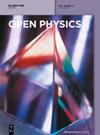Transformer-based intelligent fault diagnosis methods of mechanical equipment: A survey
IF 1.8
4区 物理与天体物理
Q2 PHYSICS, MULTIDISCIPLINARY
引用次数: 0
Abstract
Transformer is extensively employed in natural language processing, and computer vision (CV), with the self-attention structure. Due to its outstanding long-range dependency modeling and parallel computing capability, some leading researchers have recently attempted to apply Transformer to intelligent fault diagnosis tasks for mechanical equipment, and have achieved remarkable results. Physical phenomena such as changes in vibration, sound, and heat play a crucial role in the research of mechanical equipment fault diagnosis, which directly reflects the operational status and potential faults of mechanical equipment. Currently, intelligent fault diagnosis of mechanical equipment based on monitoring signals such as vibration, sound, and temperature using Transformer-based models remains a popular research topic. While some review literature has explored the related principles and application scenarios of Transformer, there is still a lack of research on its application in intelligent fault diagnosis tasks for mechanical equipment. Therefore, this work begins by examining the current research status of fault diagnosis methods for mechanical equipment. This study first provides a brief overview of the development history of Transformer, outlines its basic structure and principles, and analyzes the characteristics and advantages of its model structure. Next it focuses on three model variants of Transformer that have generated a significant impact in the field of CV. Following that, the research progress and current challenges of Transformer-based intelligent fault diagnosis methods for mechanical equipment are discussed. Finally, the future development direction of Transformer in the field of mechanical equipment fault diagnosis is proposed.基于变压器的机械设备智能故障诊断方法:调查
Transformer 具有自注意结构,在自然语言处理和计算机视觉(CV)中得到广泛应用。由于其出色的远距离依赖建模和并行计算能力,最近一些领先的研究人员尝试将 Transformer 应用于机械设备的智能故障诊断任务,并取得了显著的成果。振动、声音、热量等物理现象的变化在机械设备故障诊断研究中起着至关重要的作用,它直接反映了机械设备的运行状态和潜在故障。目前,利用基于变压器的模型,基于振动、声音和温度等监测信号的机械设备智能故障诊断仍是一个热门研究课题。虽然一些综述性文献探讨了变压器的相关原理和应用场景,但对其在机械设备智能故障诊断任务中的应用仍缺乏研究。因此,本研究首先探讨了机械设备故障诊断方法的研究现状。本研究首先简要介绍了变压器的发展历史,概述了其基本结构和原理,分析了其模型结构的特点和优势。接着,重点介绍了在 CV 领域产生重大影响的三种变压器模型变体。随后,讨论了基于变压器的机械设备智能故障诊断方法的研究进展和当前面临的挑战。最后,提出了 Transformer 在机械设备故障诊断领域的未来发展方向。
本文章由计算机程序翻译,如有差异,请以英文原文为准。
求助全文
约1分钟内获得全文
求助全文
来源期刊

Open Physics
PHYSICS, MULTIDISCIPLINARY-
CiteScore
3.20
自引率
5.30%
发文量
82
审稿时长
18 weeks
期刊介绍:
Open Physics is a peer-reviewed, open access, electronic journal devoted to the publication of fundamental research results in all fields of physics. The journal provides the readers with free, instant, and permanent access to all content worldwide; and the authors with extensive promotion of published articles, long-time preservation, language-correction services, no space constraints and immediate publication. Our standard policy requires each paper to be reviewed by at least two Referees and the peer-review process is single-blind.
 求助内容:
求助内容: 应助结果提醒方式:
应助结果提醒方式:


